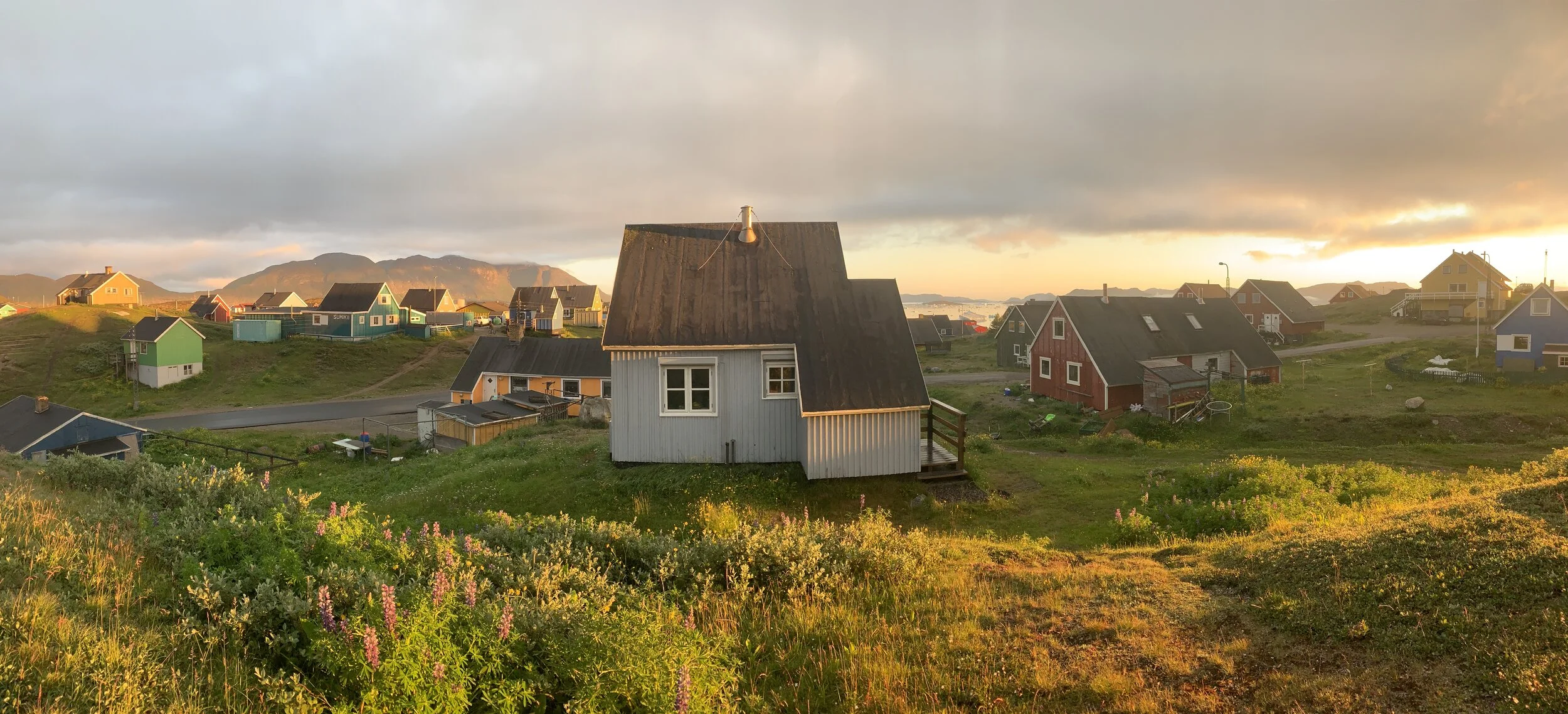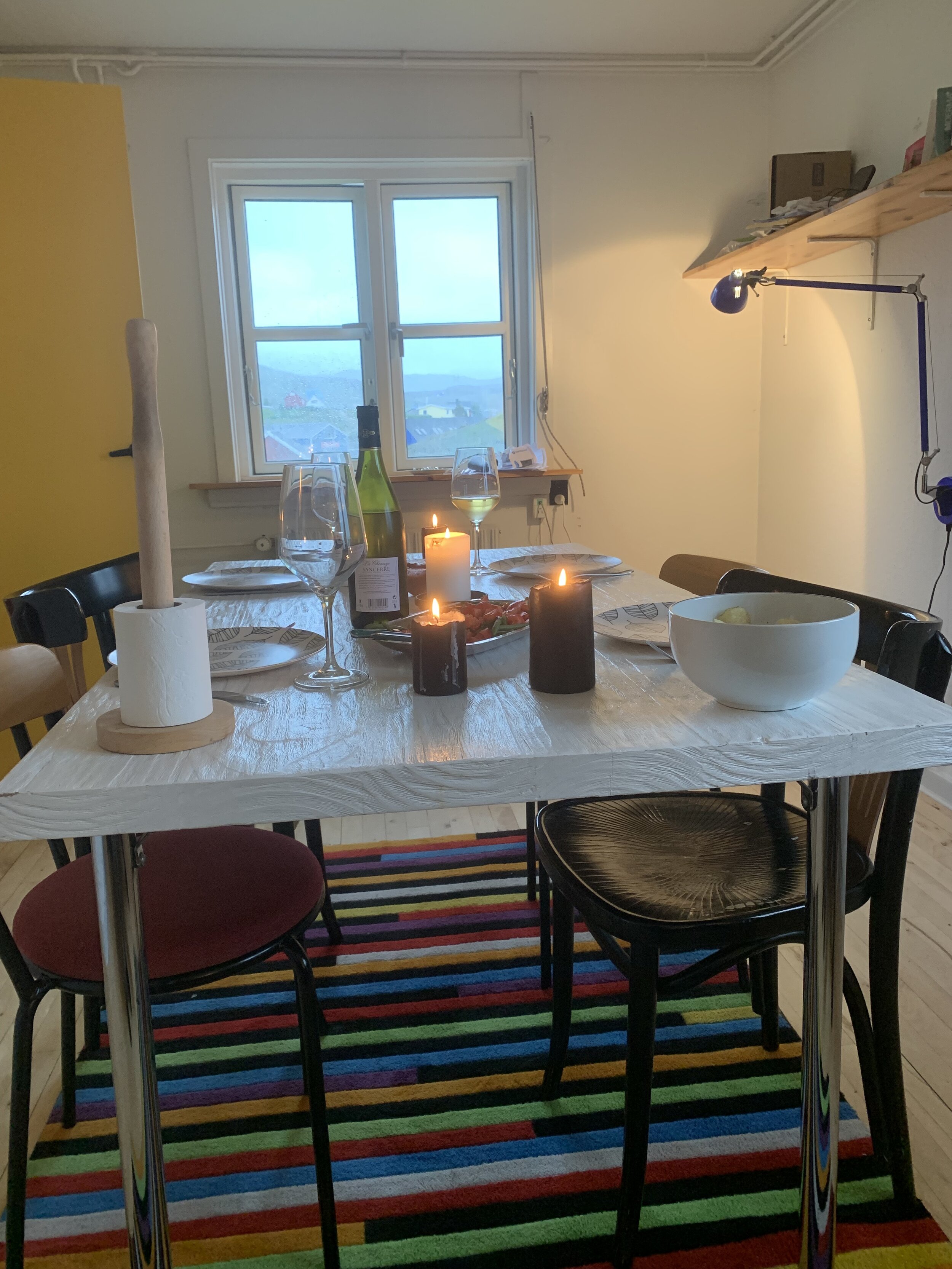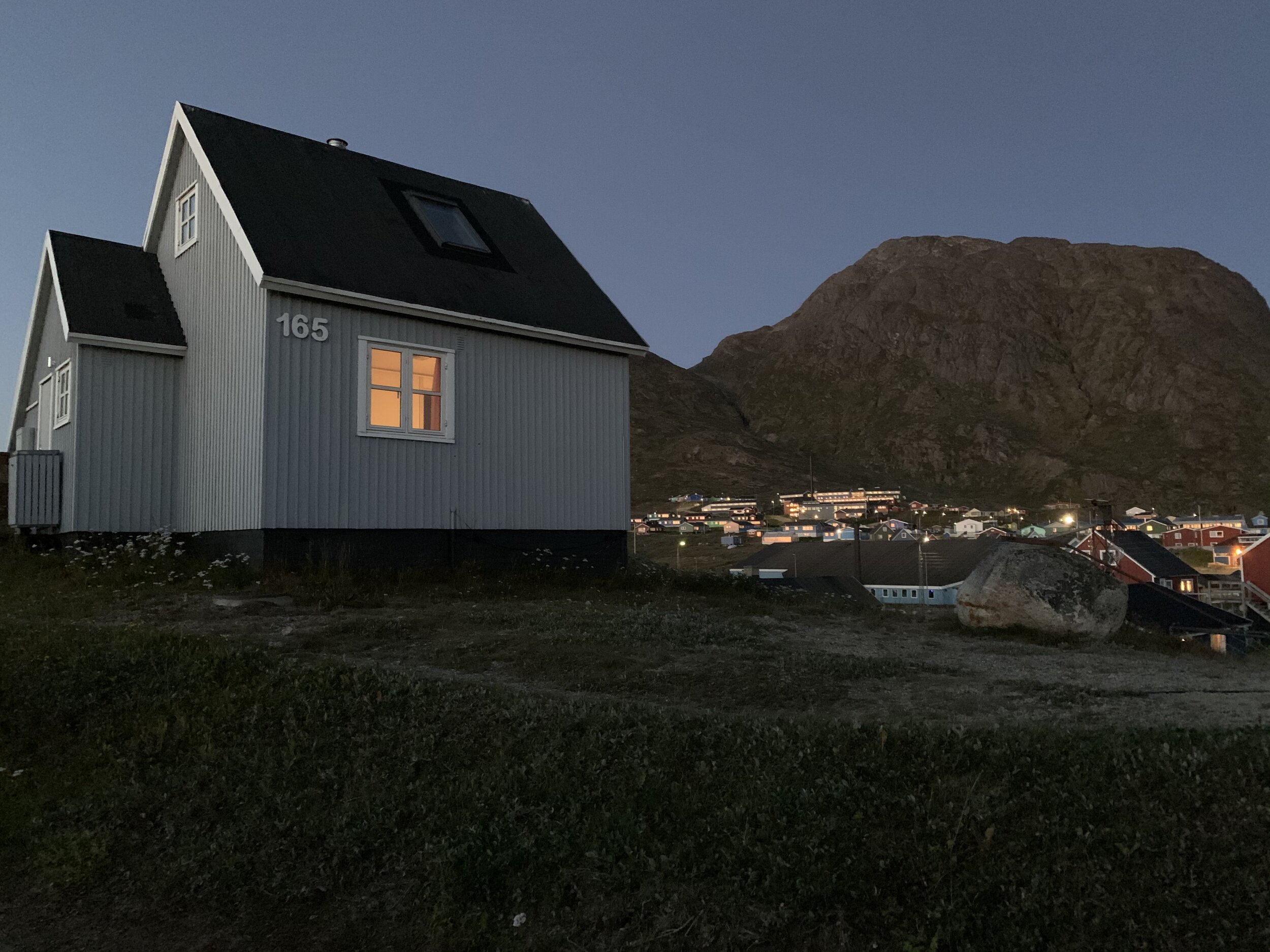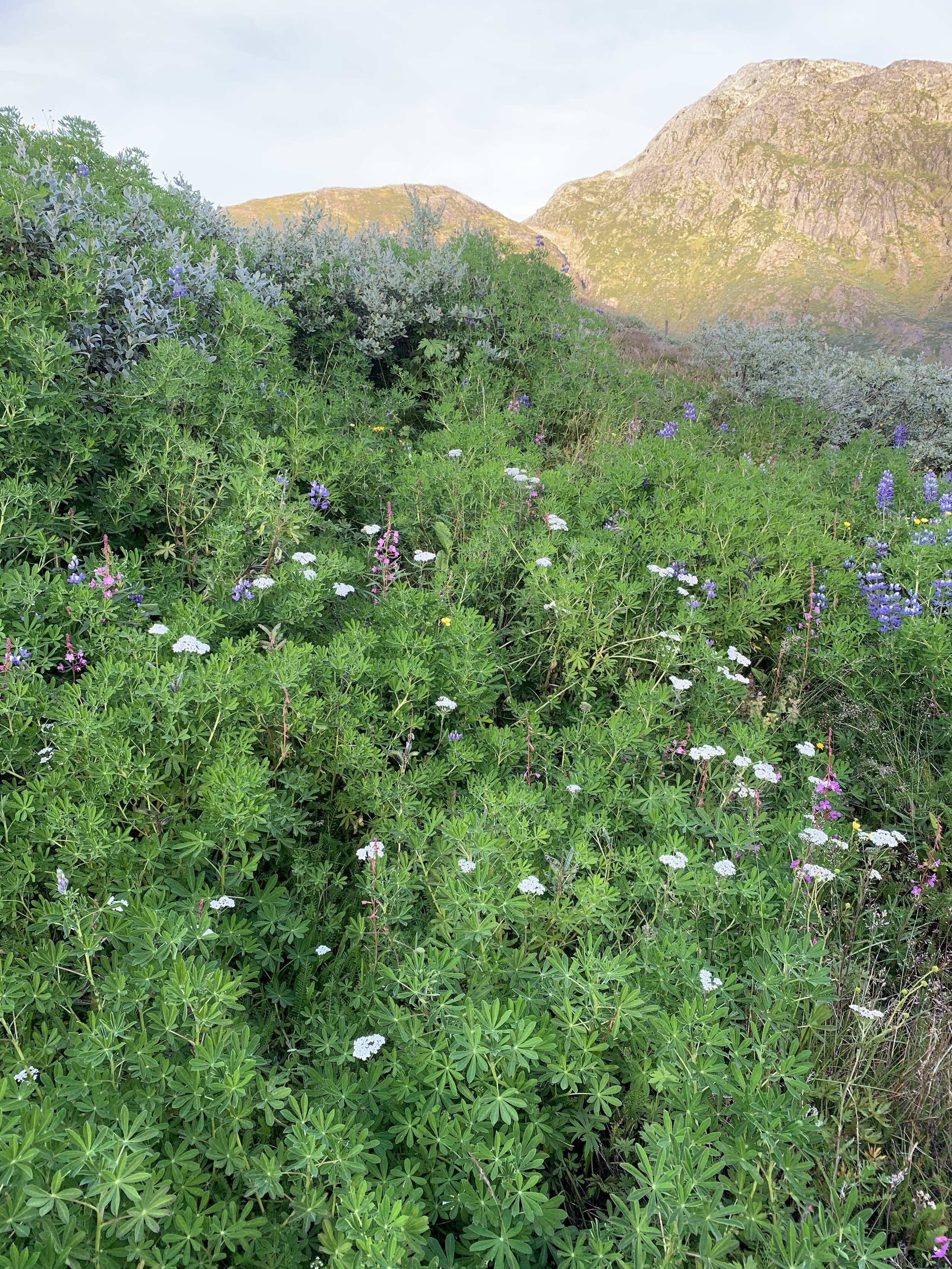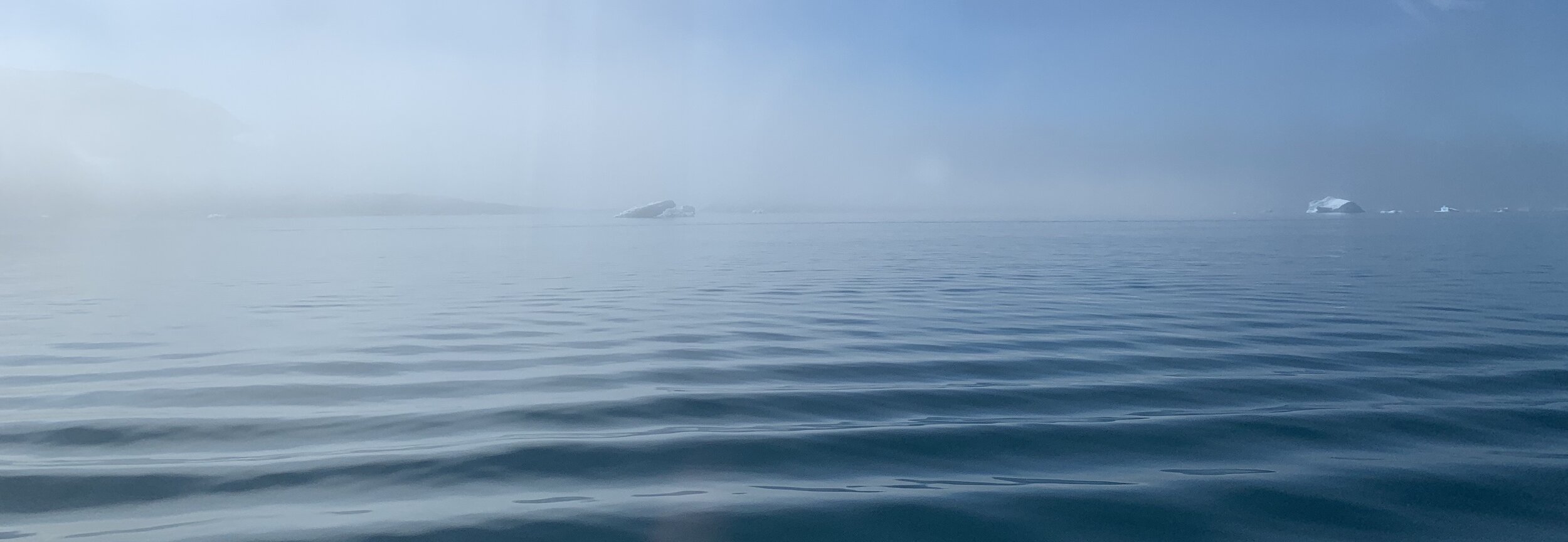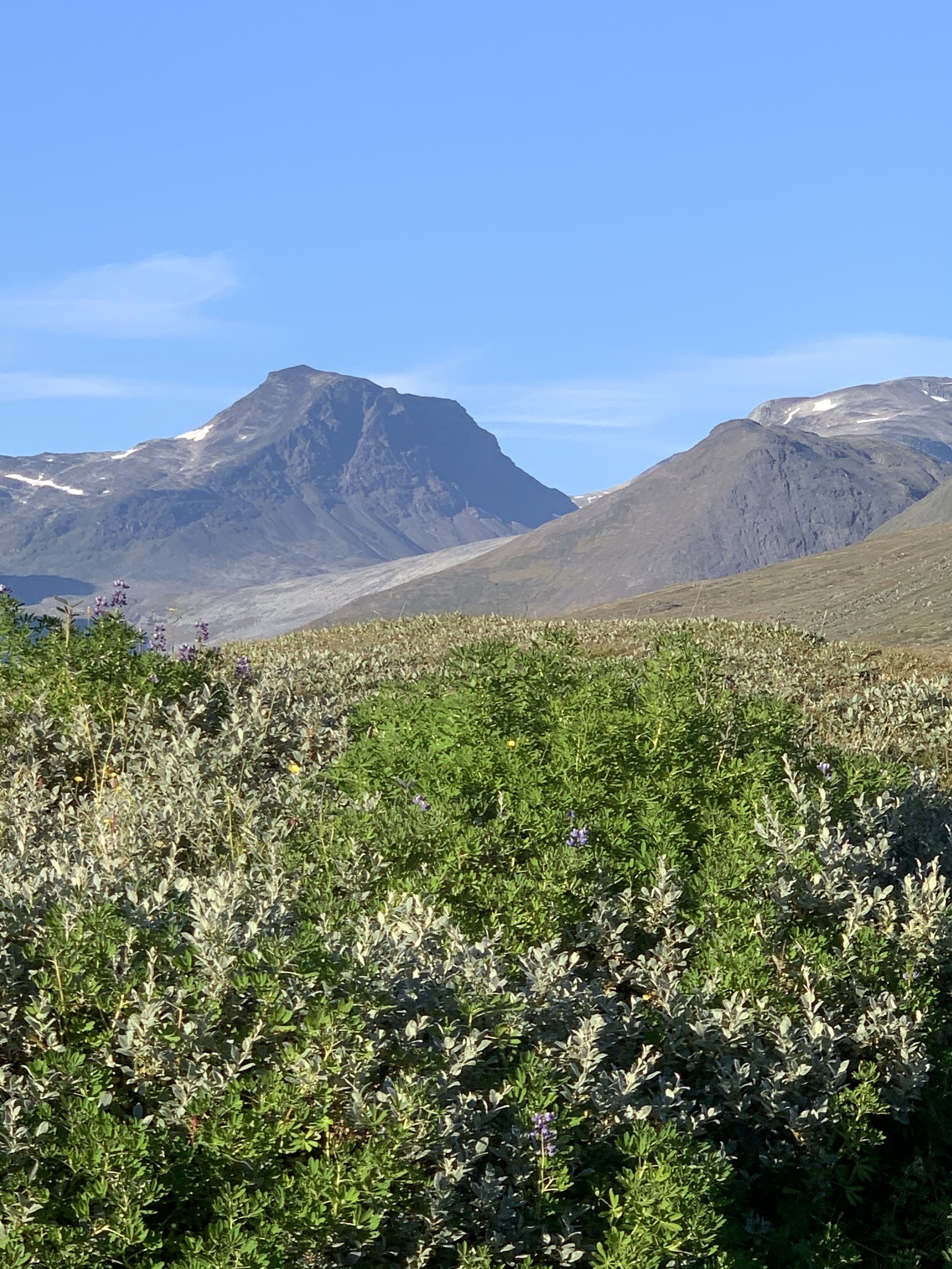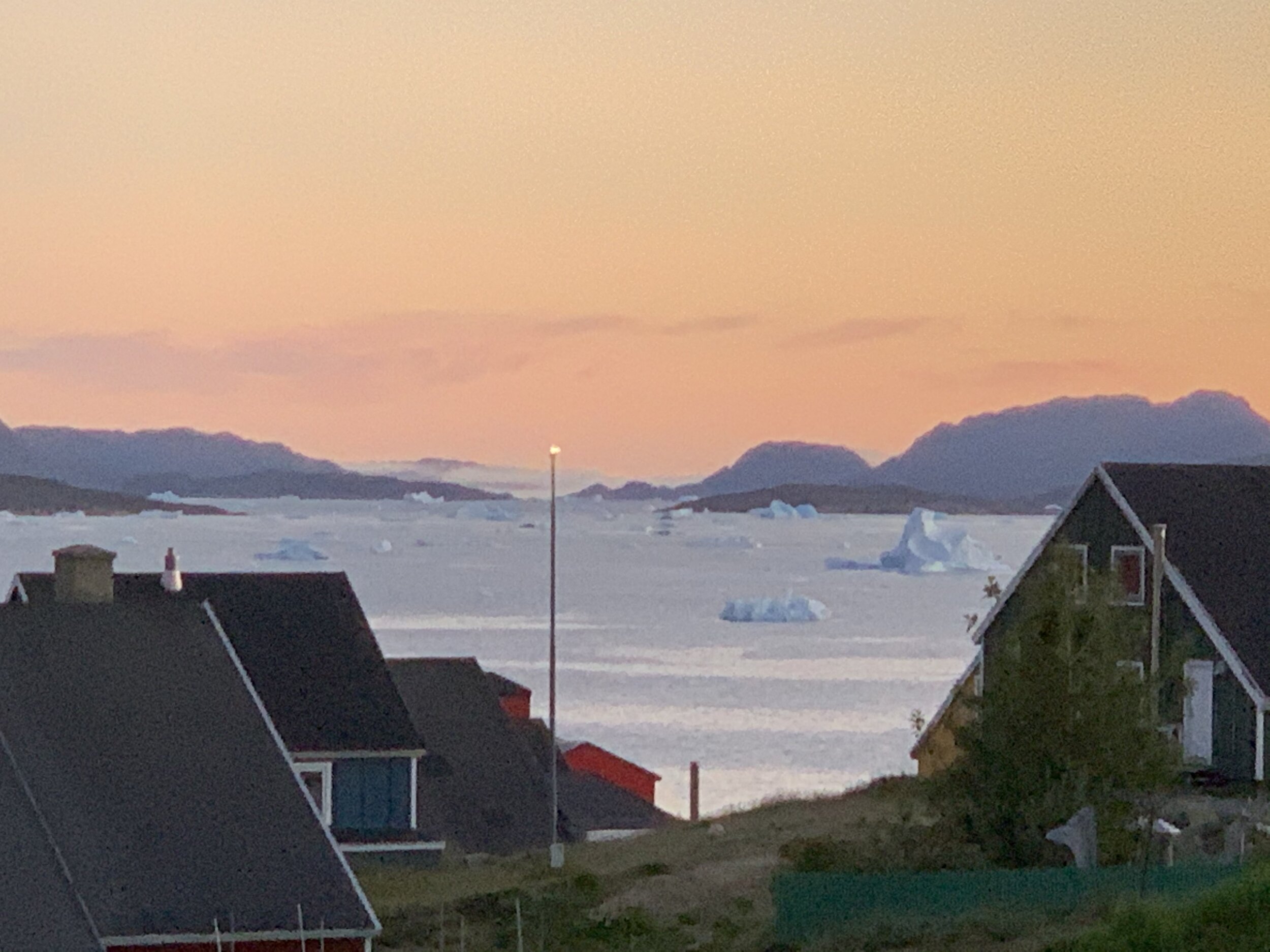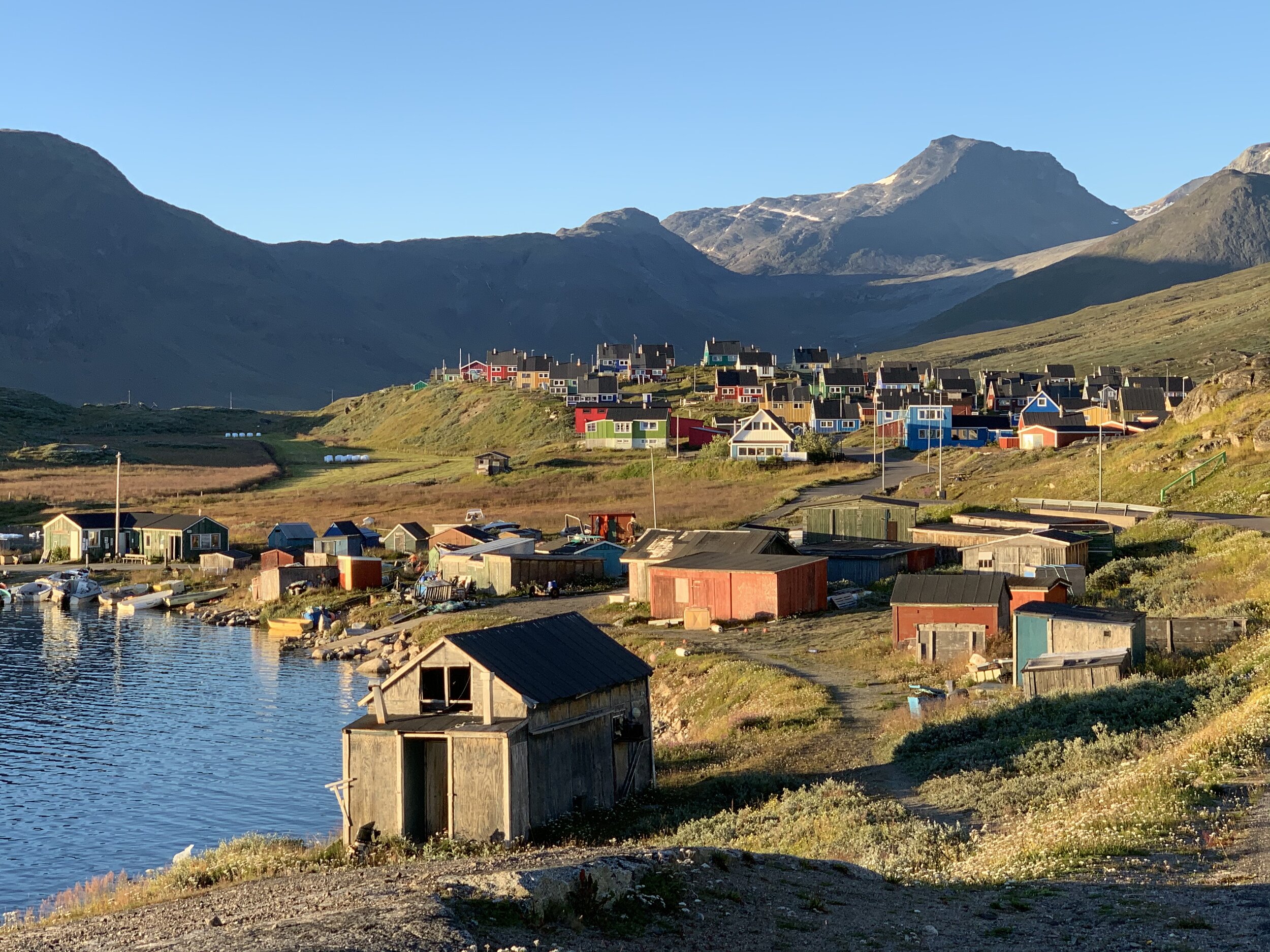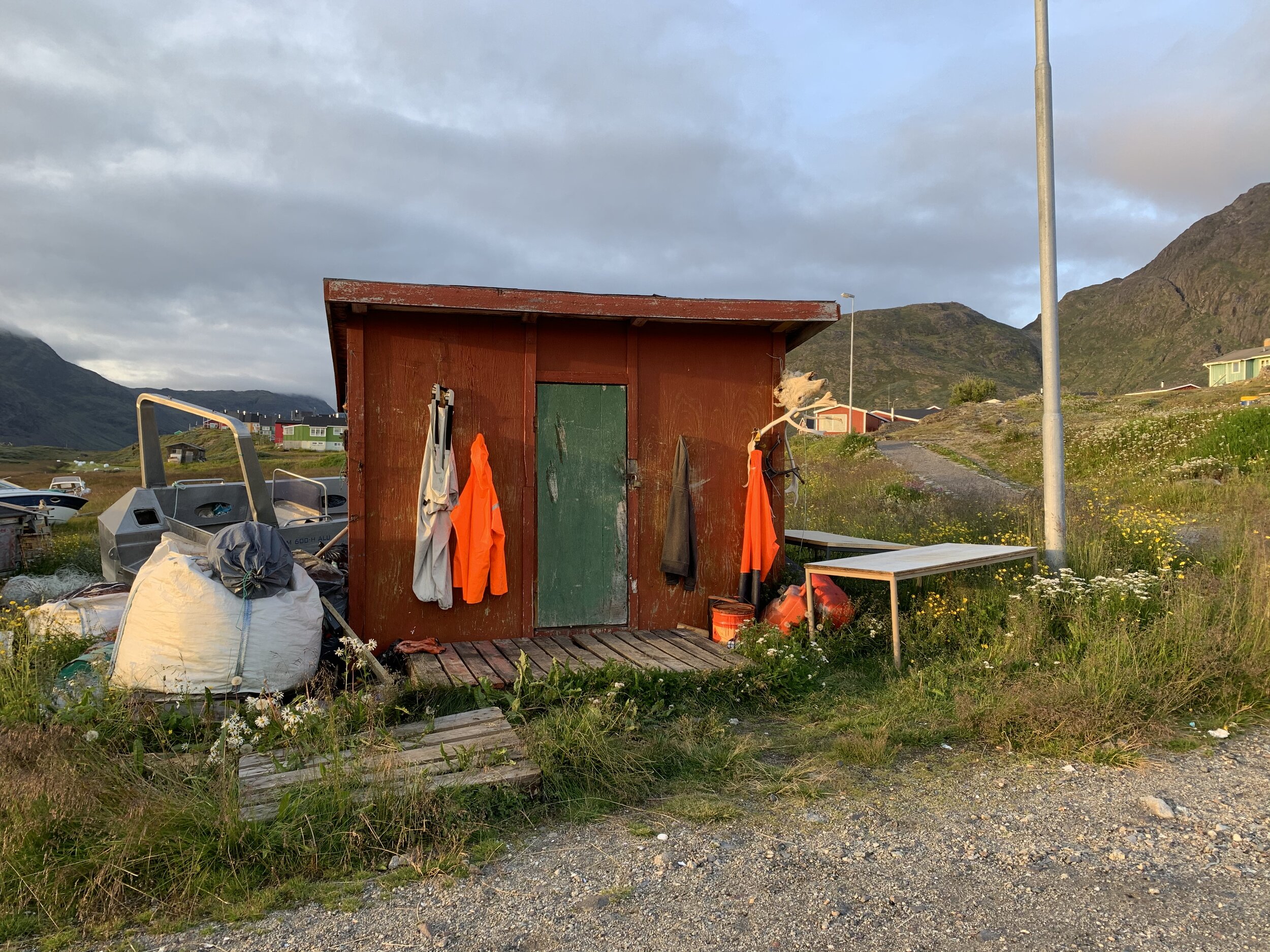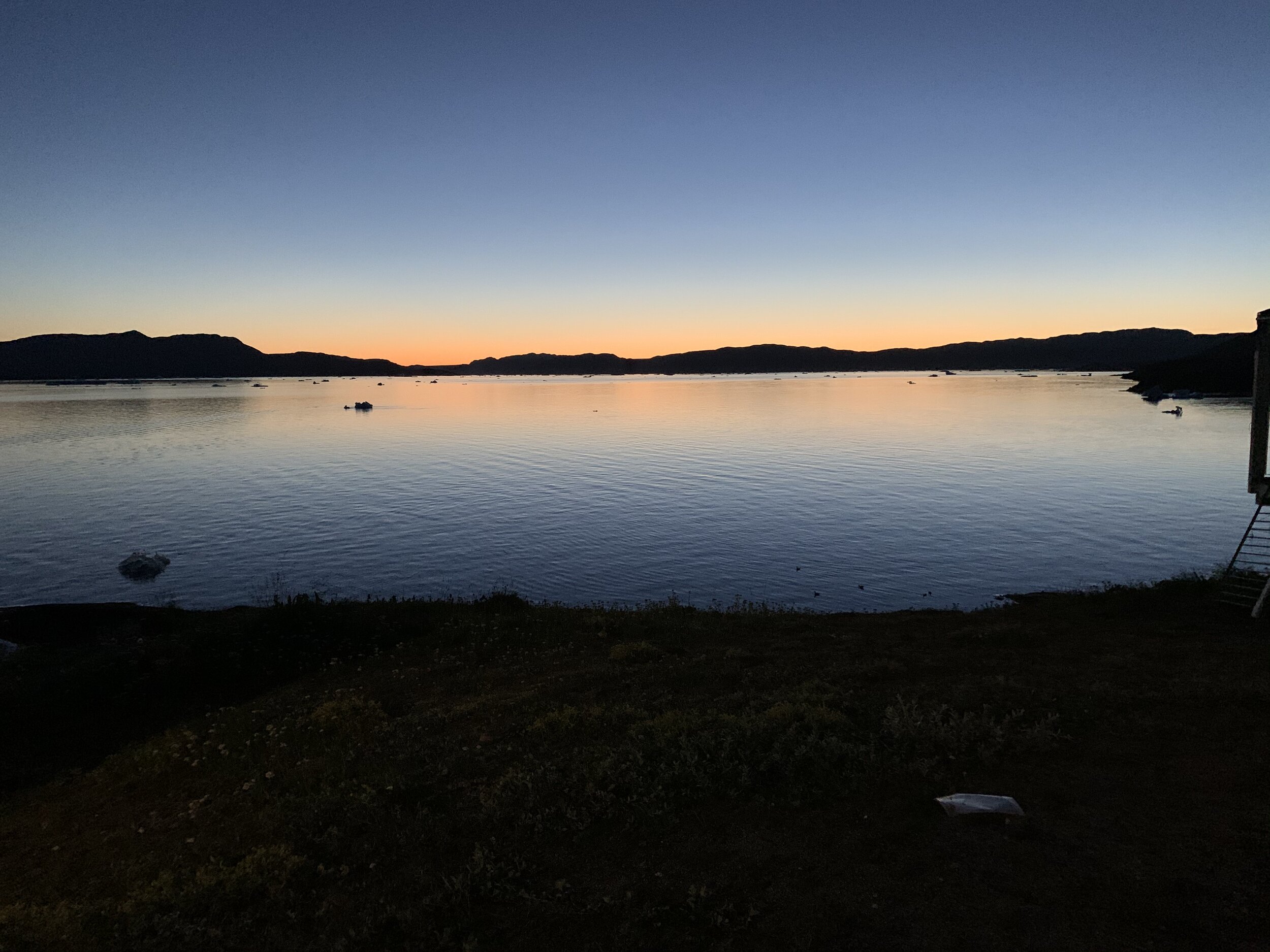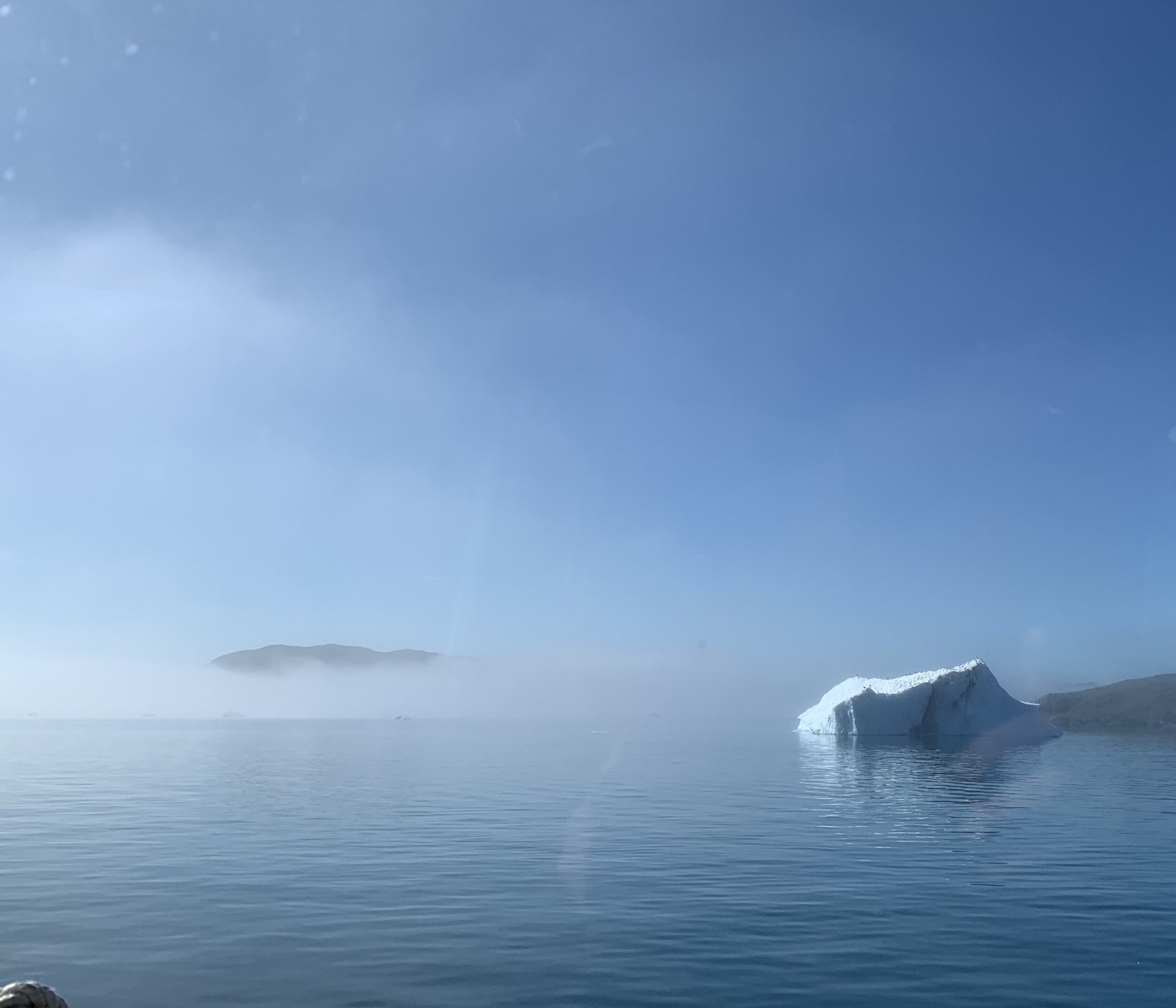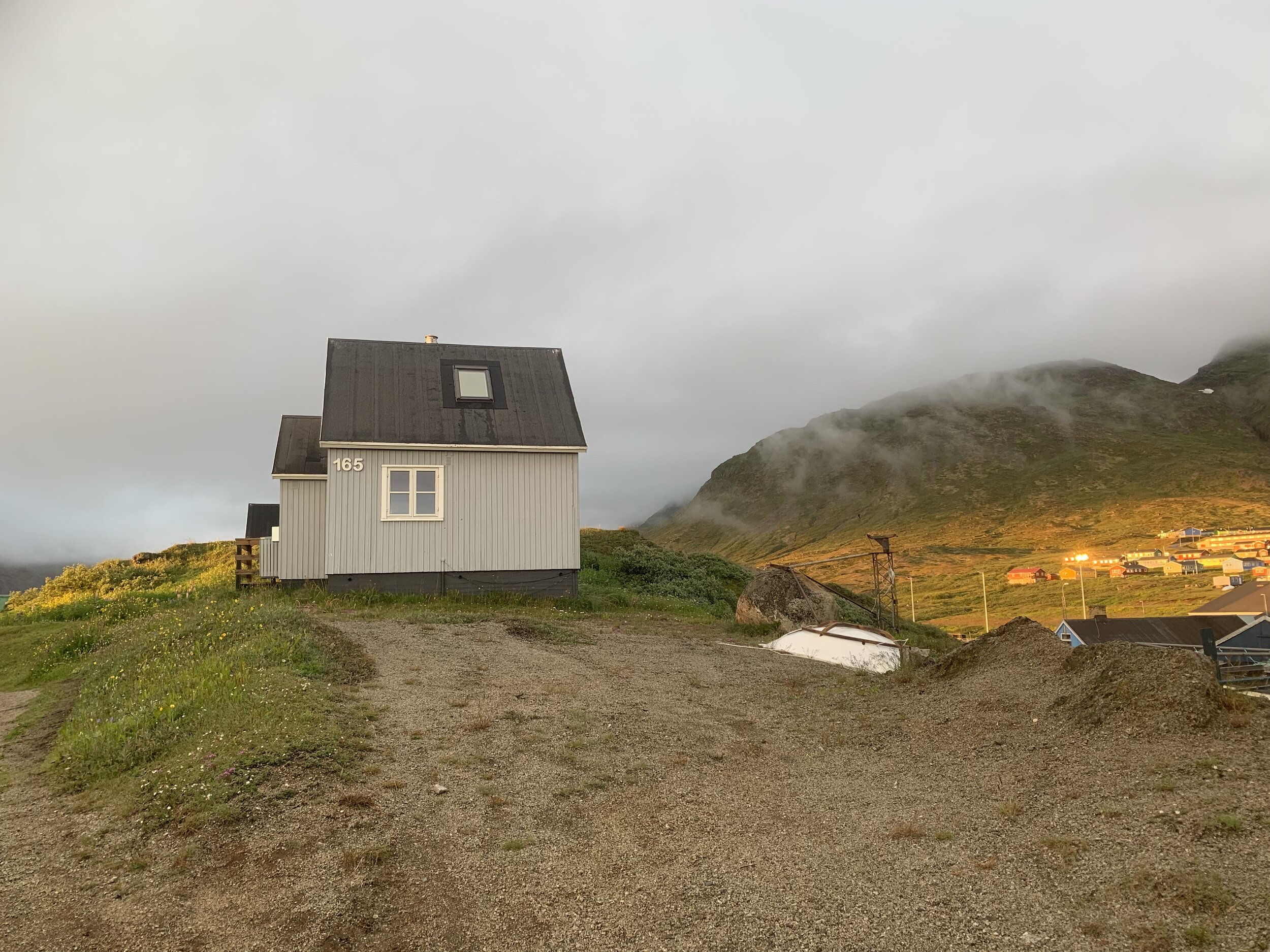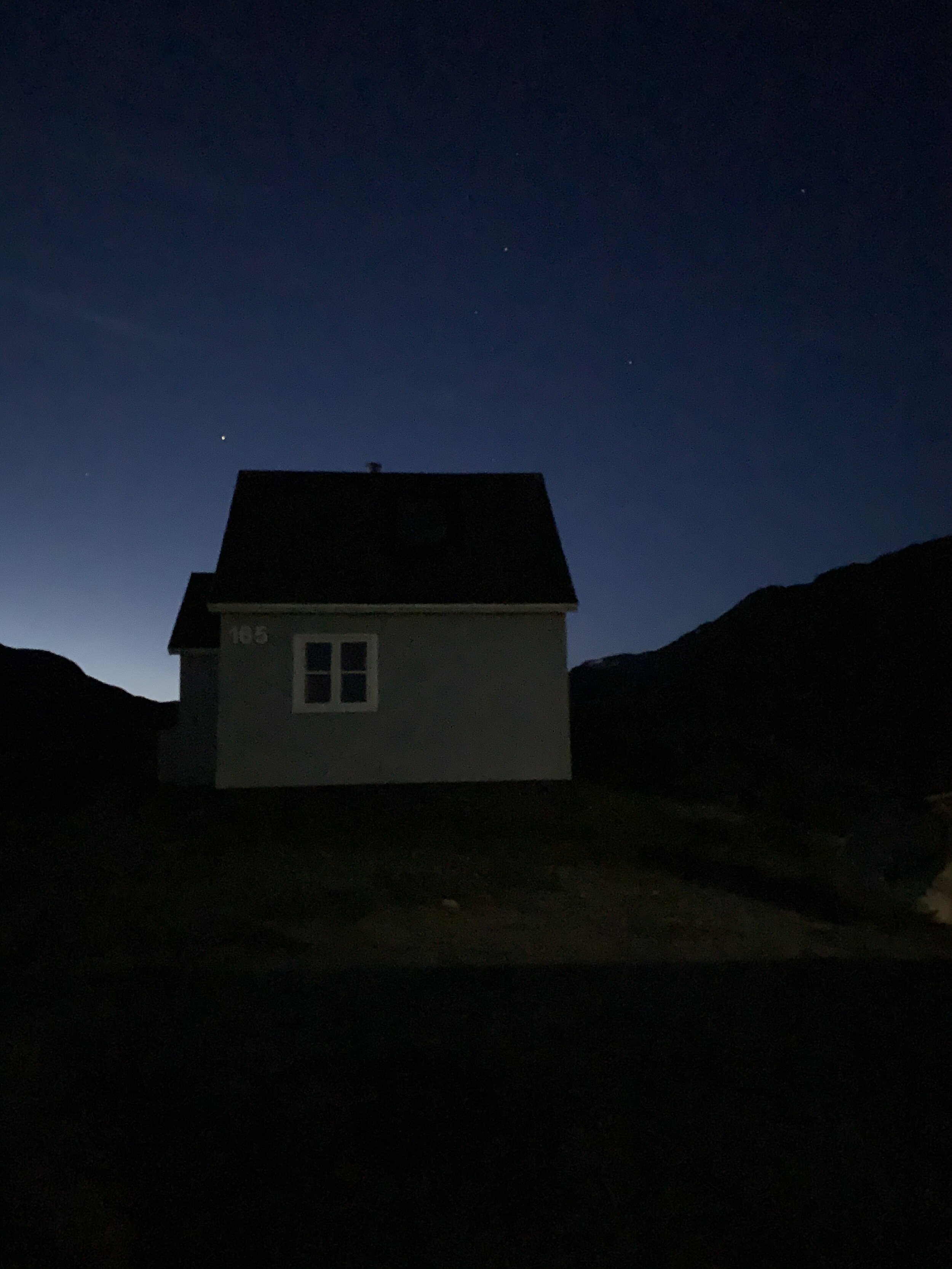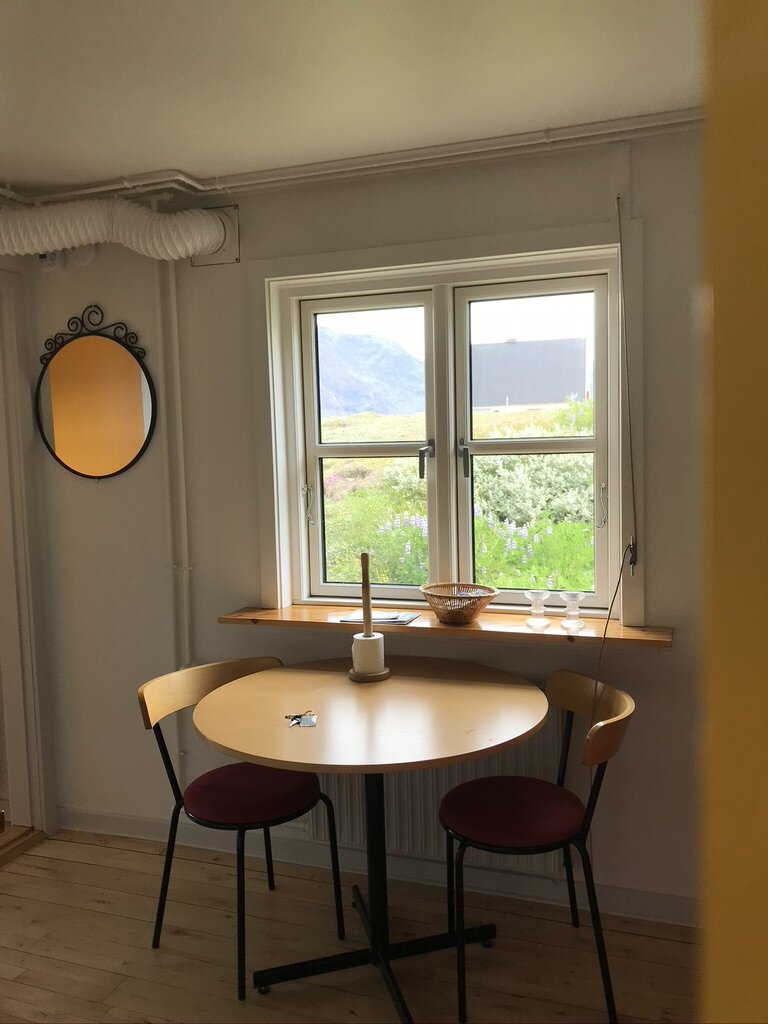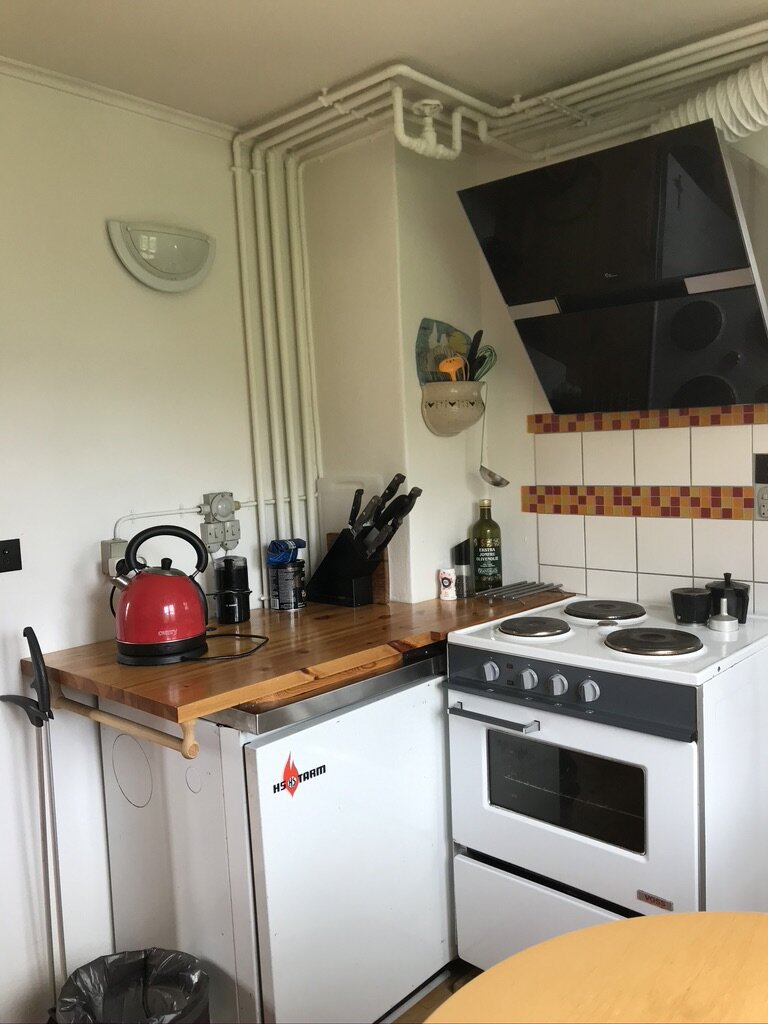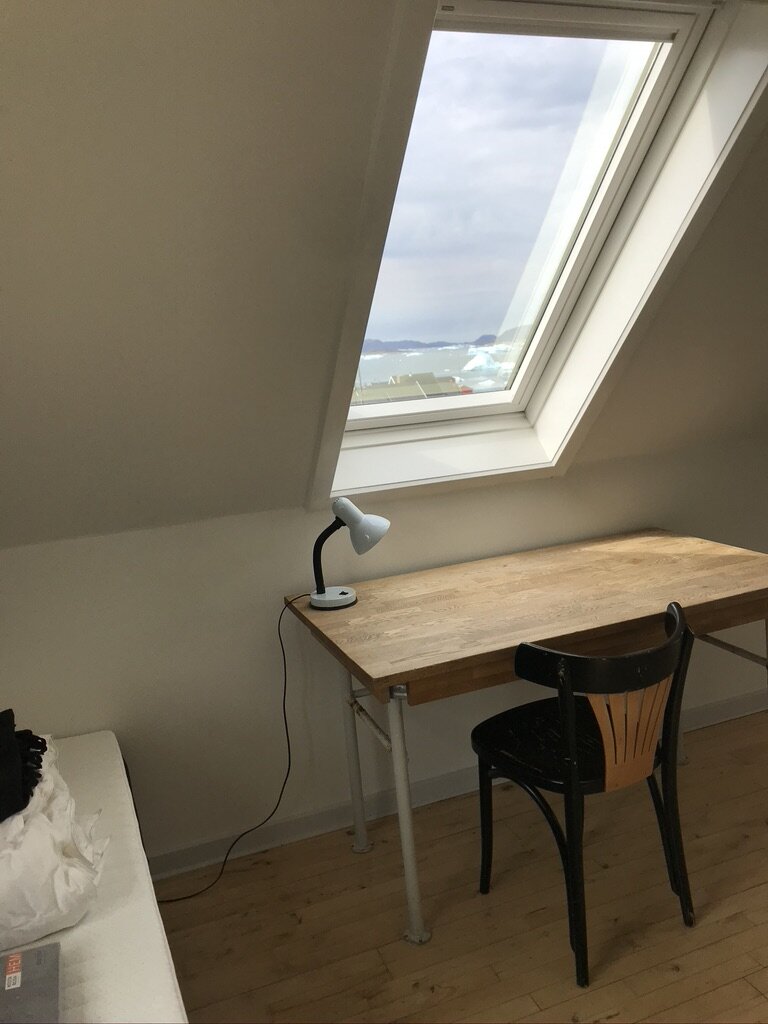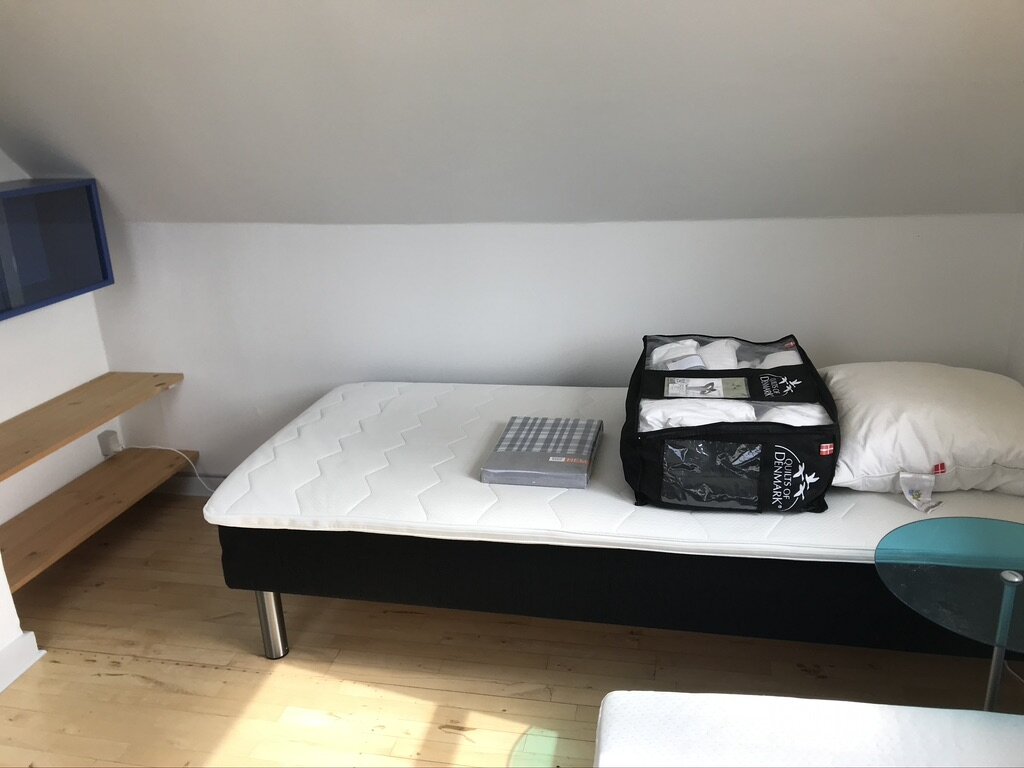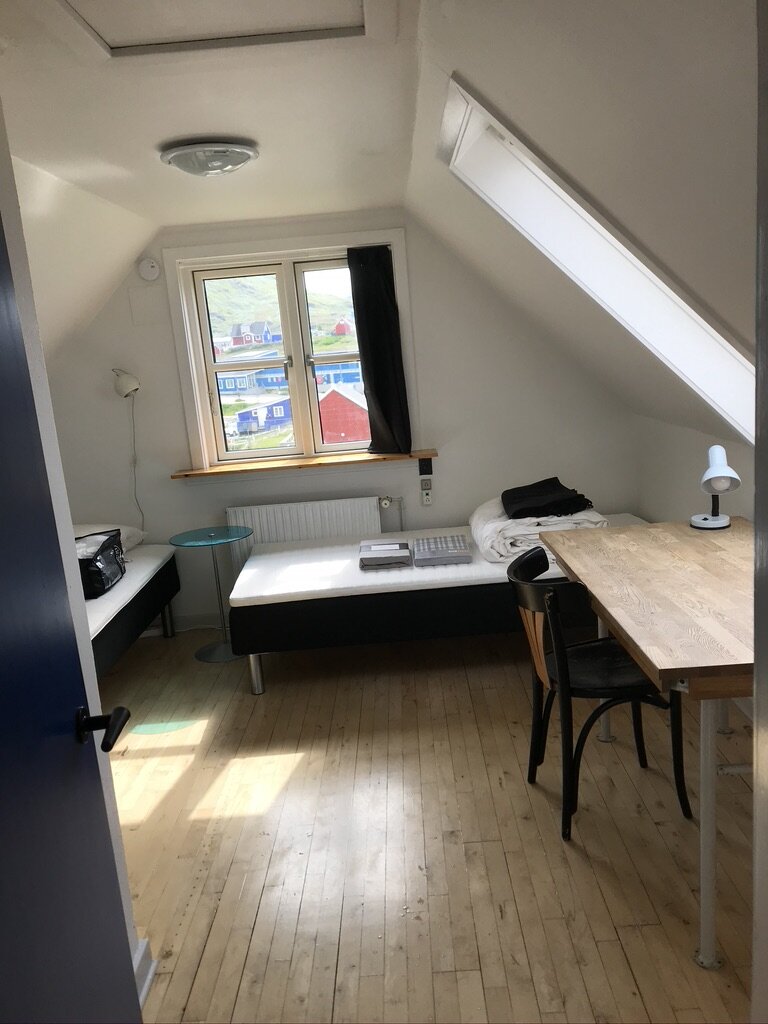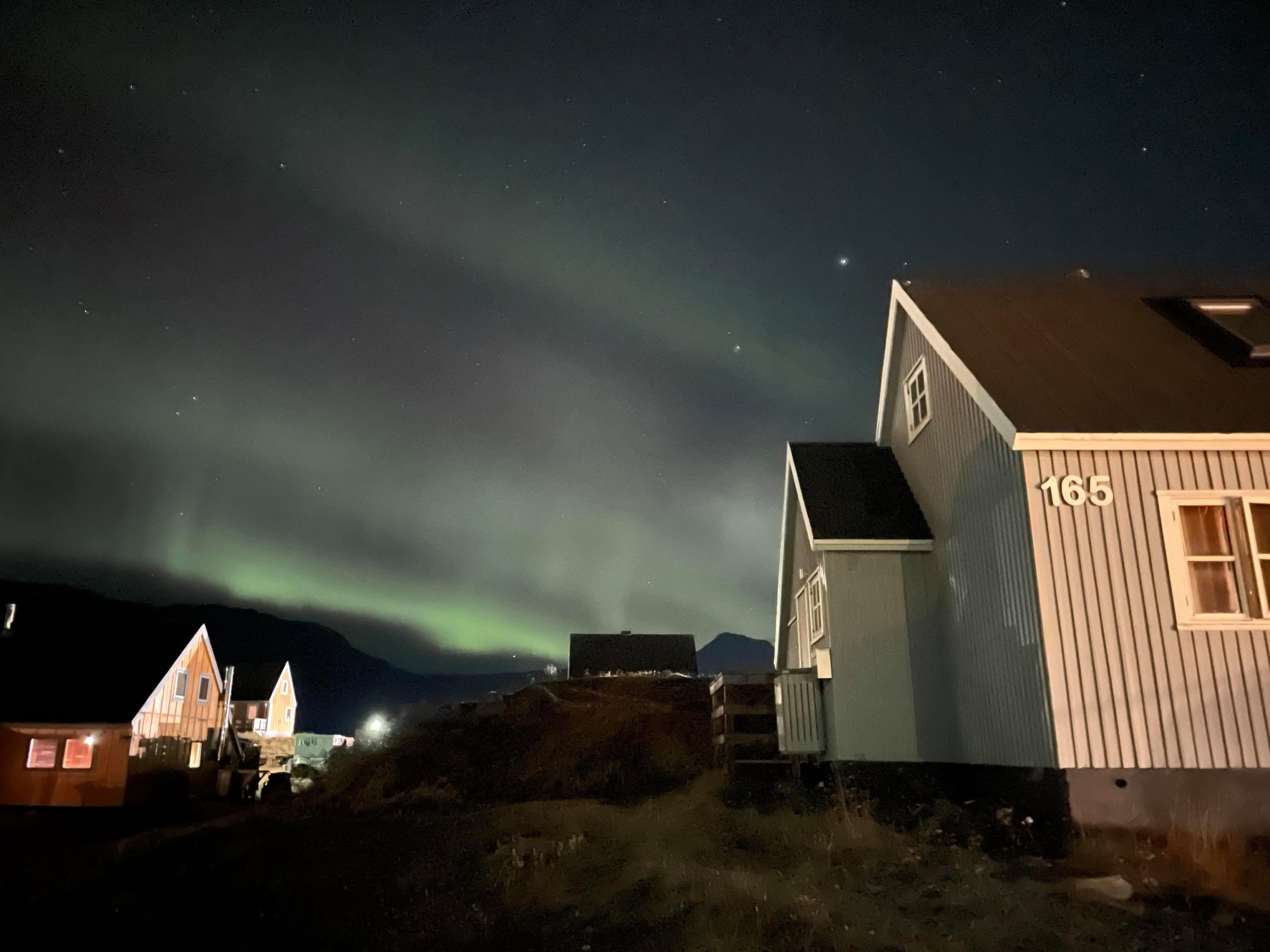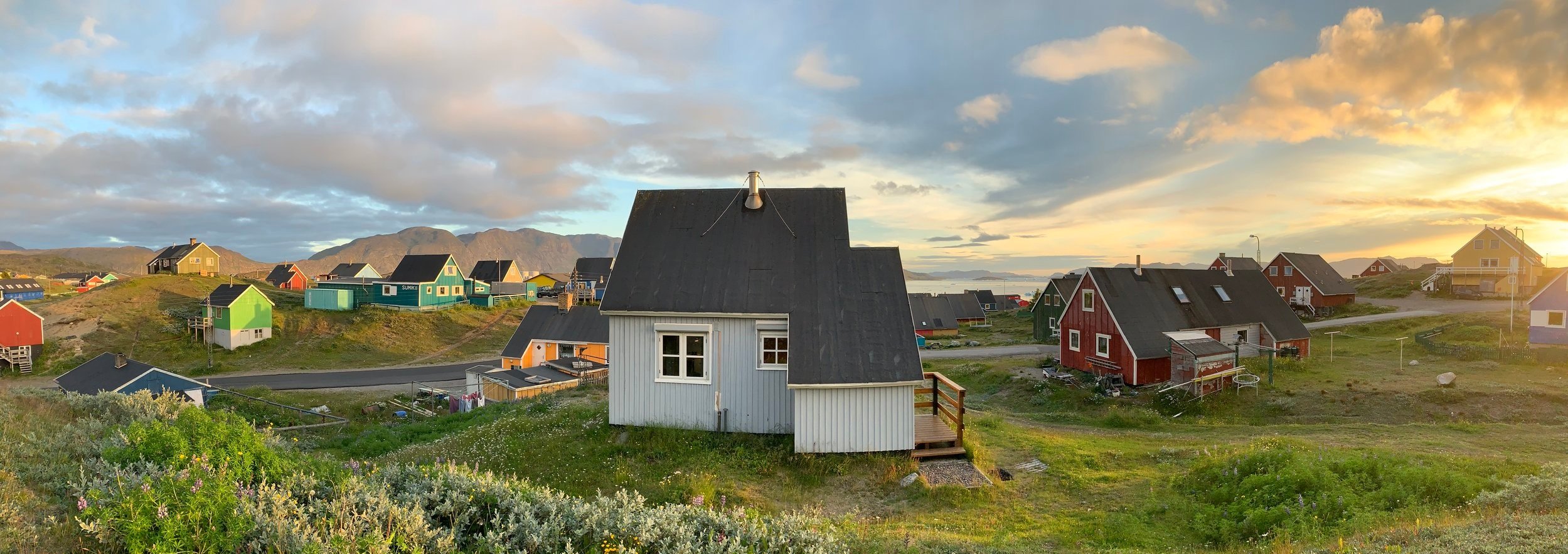
Narsaq International Research Station is an independent non-profit research platform with a focus on cultural and scientific research in South Greenland. The Research Station is located in a region of outstanding natural beauty and cultural heritage that is central for understanding some of the most urgent challenges the world is facing today.
-
October 2023
- 18 Oct 2023 Website updated soon! See all our activities on our Facebook site when clicking this message 18 Oct 2023
-
July 2023
- 2 Jul 2023 Weather balloon test flight for everyone in Narsaq 2 Jul 2023
-
May 2023
- 18 May 2023 Update on the Greenfjord project’s research activities in Narsaq this summer 18 May 2023
- 11 May 2023 Artists Naja Abelsen and Eleanor Havsteen Franklin at NIRS 11 May 2023
-
December 2022
- 20 Dec 2022 NIRS now a partner of The Nordic Alliance of Artists’ Residencies on Climate Action (NAARCA) 20 Dec 2022
- 20 Dec 2022 ‘Indoor radon survey in Greenland and dose assessment’ 20 Dec 2022
- November 2022
- October 2022
-
September 2022
- 13 Sep 2022 Sea-Water Colour Workshop in Narsaq / Workshop ; Immap qalipaatai - akvarel atorlugu Narsami qalipaaneq 13 Sep 2022
- 8 Sep 2022 Comparative research into intangible cultural heritage between two coastal regions across the Northwest Atlantic 8 Sep 2022
- 8 Sep 2022 Public Meeting about Radon and the Indoor Environment in Narsaq Community Hall 8 Sep 2022
- 5 Sep 2022 ‘Climate Change Impact on Radon and Human Health Dose Assessment’ 5 Sep 2022
- 3 Sep 2022 Inuiaqatigiit iluanni apeqqummut unammillernartumut ilanngunneqarneq: Arnat, aatsitassarsiorneq, pi. 3 Sep 2022
- 3 Sep 2022 Om at blive involveret i udfordrende samfundsspørgsmål: Kvinder, Minedrift og Naturbeskyttelse 3 Sep 2022
-
August 2022
- 22 Aug 2022 Canadian researcher Joanna Kafarowski undertaking research into gender, exploration and climate change in Greenland 22 Aug 2022
- 18 Aug 2022 NIRS is hosting the four year research programme: GreenFjord (Greenlandic fjord ecosystems in a changing climate: socio-cultural and environmental interactions) 18 Aug 2022
- 14 Aug 2022 Back to the Future for Lakes and Streams around Narsaq - a Danish/ Greenlandic research project focused on the ecology of freshwater streams and lakes in the Narsaq area. 14 Aug 2022
- 2 Aug 2022 Sermitisaq: “Kalaallit radonimut ulorianartorsiorsinnaapput - kingunerluuteqarsinnaasumik” 2 Aug 2022
-
July 2022
- 28 Jul 2022 Researchers from the Swiss Greenfjord research consortium (fjord ecosystems monitoring in South Greenland) will install sensors in fjords and glaciers near Narsaq. 28 Jul 2022
- 9 Jul 2022 Jakob Brodersen and team of researchers from Eawag, Switzerland conducting fish ecology (arctic char) research in South Greenland. 9 Jul 2022
-
June 2022
- 30 Jun 2022 Researchers from Aarhus University’s Institute of AgroEcology staying to present their research on glacial flour impact on agricultural soil at the sheep-farmers meeting in Narsaq 30 Jun 2022
- 28 Jun 2022 Meeting with residents in Narsaq and local members of parliament and the regional council about the future plans for Narsaq International Research Station 28 Jun 2022
- 4 Jun 2022 Zane Cooper continued phd research at NIRS: Evolving relationships between data, energy and extraction in the Arctic 4 Jun 2022
-
May 2022
- 30 May 2022 NIRS starts collaboration with theatre director Hanne Trap Friis (Teater Freeze Productions) and film maker Inuk Jørgensen on the development of theatre-film production in South Greenland. 30 May 2022
- 30 May 2022 Feature in Sermitsiaq newspaper: ‘Narsaq får ny forskningsstation’ 30 May 2022
- 26 May 2022 Arctic Hub Article: ‘Keeping Knowledge in Narsaq’ 26 May 2022
-
December 2021
- 1 Dec 2021 NIRS winter closure 1 Dec 2021
-
November 2021
- 21 Nov 2021 NIRS featured in Arctic Hub / Sermitsiaq publication 21 Nov 2021
- 1 Nov 2021 Artist researcher Rikke Luther researching glacial mud in collaboration with scientists in Denmark and Greenland. 1 Nov 2021
- October 2021
- September 2021
- August 2021
-
July 2021
- 1 Jul 2021 NIRS opens for research visits 1 Jul 2021
-
June 2021
- 11 Jun 2021 GREENLAND – DENMARK 1721-2021 Conference, Aalborg University, 9-11 June 2021 11 Jun 2021
Purpose
Narsaq is a geographic region where many of the most important decisions currently facing Greenland are at their most visible and urgent. These are long-term decisions about sustainable development, independence, mining, environmental protection, democracy, infrastructure, cultural heritage, climate change and Greenland’s geopolitical role in the world. This confluence of globally important questions is the motivation for establishing Narsaq International Research Station.
The Research Station provides a platform for researchers, artists and organisations to learn from Greenland and its importance to the rest of the world.
The Research Station supports research across the sciences, humanities and the arts in collaboration with Greenlandic, Nordic, and international universities and cultural organisations.
The Research Station aims to contribute to the conservation and awareness of the invaluable natural and cultural heritage of the Narsaq region.
The research station will ensure that research taking place in South Greenland will benefit the local population.
Projects
The Research Station provides residency for projects with a specific focus on the Narsaq and South Greenland region. Projects must have a socially and environmentally sustainable approach to research and engagement with the local community and the results must be intended for public dissemination.
Researchers are expected to communicate their research to the local community - e.g through lectures, workshops, film screenings, exhibitions, performances or teaching at schools, museums, community centres or organisations in Narsaq and the region. Contacts will be facilitated by NIRS in collaboration with local organisers.
Projects will contribute to an evolving archive of research in the region, for the benefit of the local population, local schools and national as well as international researchers.
The Research Station will strive to make it financially possible, and organisationally manageable, for artists and academics to stay in South Greenland.
The Research Station will strive to generate new knowledge networks and income opportunities for the local population.
Accommodation Costs: Please contact NIRS using the form at the bottom of the page
The Research Station
Narsaq International Research Station is located in the town of Narsaq with views towards Kuannersuit (Kvanefjeld) and the fjord. The house consists of two floors, each with a combined workroom/living room. Each room has two single beds. Each room has a work space. The house has a kitchen with a small dining table, as well as a small bathroom. The house has an outdoor shower and access to shower and sauna facilities at the local sports complex around the corner. The house has central heating and a good wi-fi connection.
Local dissemination and communication of research is organised via a network of individuals, schools, organisations, and museums.
Organisation
Narsaq International Research Station was established by Lise Autogena in 2019. Lise Autogena is the daily manager of the research station and it’s links with advisors and experts. She is supported by a local support network and Ivalo Motzfeldt who is the local coordinator of the research station.
NIRS is constituted as a not for profit organisation. The Board of Directors include Peter Berliner (GL/MX), Ivalo Motzfeldt (GL), Paul Cohen (GL), Lise Autogena (UK), Iben Mosbæk (DK) and Peter Wissing (DK).
NIRS is developed with support from Sheffield Hallam University, the Danish Arts Council and Kunsthal Aarhus.
The Research Station participates in cooperation agreements with cultural and research institutions in Greenland and the rest of the world.
Advisory Group
Lise Autogena, Artist, Professor, Director of Art, Design and Media Research Centre at Sheffield Hallam University in England (ADMRC)
Iben Mosbæk, Art Historian, Adm. Director of Kunsthal Aarhus
Peter Wissing, economist and director of Wissing Sustain
Ivalo Motzfeldt, Head of Kultur og Fritid in Narsaq, Kujalleq Council and local coordinator for the research station.
Peter Berliner, Professor in Psychology, Institute of Social Science, Economics & Journalism, Department of Social Work at Ilisimatusarfik's Centre for Arctic Welfare & Centre for Children, Youth & Family Research
Paul Cohen, Translator, Narsaq
Kristine Lynge-Pedersen, cand. scient. soc. in geography and Communication. Researcher at Greenland Institute off Natural Resources
Jesper Enevoldsen, Historian, Director of Narsaq Museum
Nivi Christensen, Director of Nuuk Art Museum
Claudia Lastra, Executive Director, The Arts Catalyst - Centre for Art, Science & Technology, England
Susanne Andreasen, Director of The National Theatre of Greenland
Rasmus Leander Nielsen, cand.scient. pol, assistant professor and Head of Nasiffik - Centre for Foreign & Security Policy, Ilimmarfik, University of Greenland
Maria Ackrén, Associate Professor, Head of Department of Social Sciences and Head of Research at Nasiffik - Centre for Foreign & Security Policy & Centre for Children, Youth & Family Research, Ilimmarfik, University of Greenland,
Birger Poppel, Emeritus, Institute for Learning, University of Greenland
Javier Arnaut, Associate Professor in Economy at University of Greenland
Josephine Nymand, Head of Department, Department of Environment and Minerals, Greenland Institute of Natural Resources
Ulrik Pram Gad, Senior Researcher, Foreign policy and diplomacy, DIIS
Agricultural Consulting Services in Greenland
Mariia Simonsen, Member of Greenland Parliament, Associate Professor in Journalism at University of Greenland, resident of Narsaq
Anders Mosbech, Head of Research and Consultancy, Arctic Environment, Department of Bioscience, Aarhus University & Arctic Research Centre, Danish Centre for Environment and Energy
The Greenlandic Cooperative Sheep Farmers Association
Inuk Jørgensen, Film Artist, from Narsaq, resident of Nuuk
Magga Karlsen, local weaver, Narsaq
Irene Jensen, Teacher of Nutrition, Nuuk
Vivi Johansen-Stolt. Teacher in Nutrition, Paamiat
Kisser Thorsøe, Principal Adviser, Geological Survey of Denmark and Greenland (GEUS)
Mariane Paviasen, Minister for Housing and Infrastructure, Greenland Parliament
Det Grønlandske Hus in Århus (dissemination partner)
Niels Henrik Hooge, Cand. Jur. Master of Arts in Philophy, NOAH
Joshua Portway, Filmmaker, Multimedia Artist, UK
Peter Nørris-Christensen, teacher at Narsap Atuarfia, Narsaq School
Per Kunuk Lyberth -Lynge, Translator, Narsaq
Angu Motzfeldt, artist
Violeta Hansen (Scientist, Radioecology), Arctic Environment, Department of Bioscience, Danish Centre for Environment and Energy (DCE) Aarhus University
Inuk Silis Høegh, artist
Ivalo Egede Lund, Head Nurse, Narsaq
Donations
VR Camera donated by Zane Cooper
Kitchen utensils donated by Paul Cohen, Monika Brune, Ivalo Egede Lund, Lone Lütken-Petersen
Books donations by Iben Mosbæk and Lise Autogena
Furniture donation by Narsaq Sportscenter

